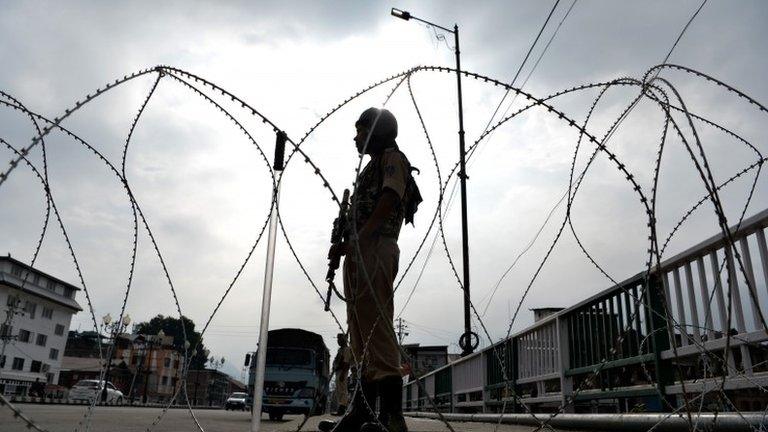Kashmir: A priority for British Asians?
- Published
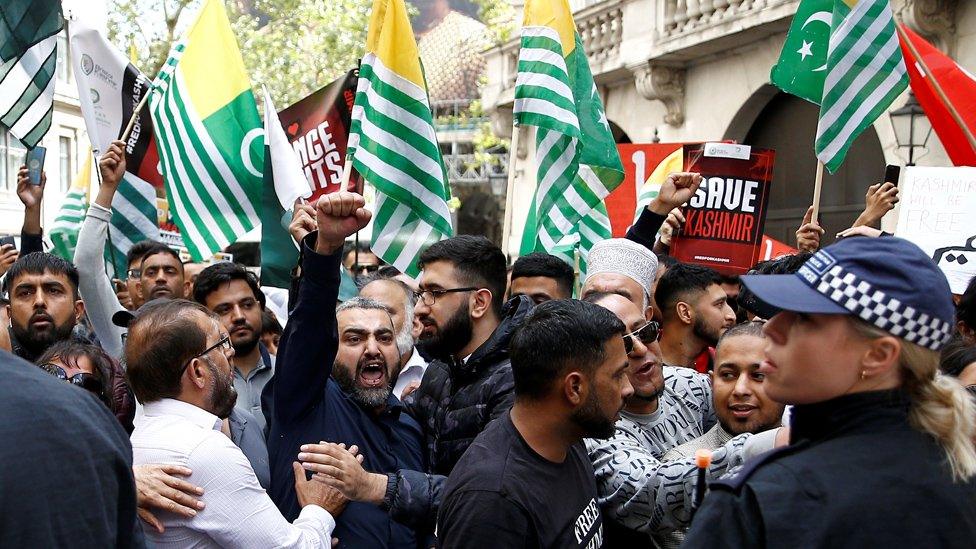
Among the thousands of people gathered outside the Indian High Commission in London on Thursday, a woman stood with tears in her eyes as she joined in the chants: "What do we want? Freedom."
Part of the city was brought to a standstill as crowds of anti-Indian government demonstrators flooded the road, protesting against the country's decision to place part of Kashmir under lockdown.
Police had to keep them apart from a separate group who had gathered to celebrate India's Independence Day.
But for the protesters - passing around black strips of cloth which they tied to their arms and waving photographs from Kashmir - it was a "black day".
The protest came as Indian PM Narendra Modi said his decision to strip Indian-administered Kashmir of its special status, which gave it significant autonomy from the rest of India, would restore the region to its "past glory".
But how much of a priority is the issue for British South Asians?
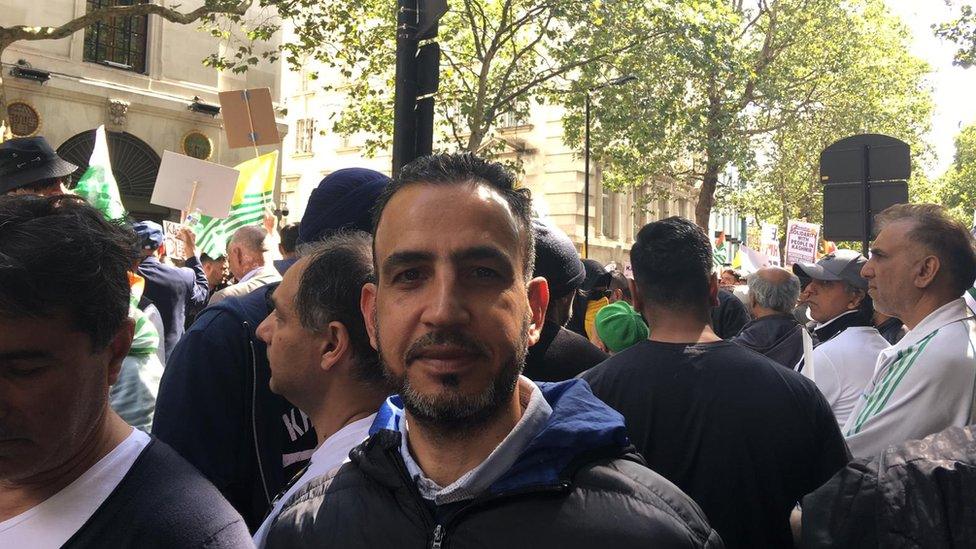
Razaq Raj, from Leeds Beckett University, was at the protest in central London
Riz Ali, 34, travelled for about three hours from Peterborough to be at the protest. He calls what is happening in Kashmir, the birthplace of his grandparents, "disgusting".
"It's another version of what Hitler did," he says.
However, the tensions don't affect his everyday social life, or relations with British Asians of Indian descent. "We're Muslim and our religion teaches us to show peace," he says.
Razaq Raj, a lecturer from Leeds, whose parents are from the Pakistan-administered Kashmir, says the political crisis is not divisive in his daily life - but is adamant that he will not buy Indian products.
"We are all Asian, our heritage is Asian," he says. "Indians are as good as anybody to me. It's not the Indian people, it's the Indian government."
'They've got other concerns'
But away from the protests, South Asian activists in the charity sector tell BBC News that combating social injustices unite communities regardless of their faith or ethnicity, and suggest that younger generations are more likely to be divided over tensions between India and Pakistan.
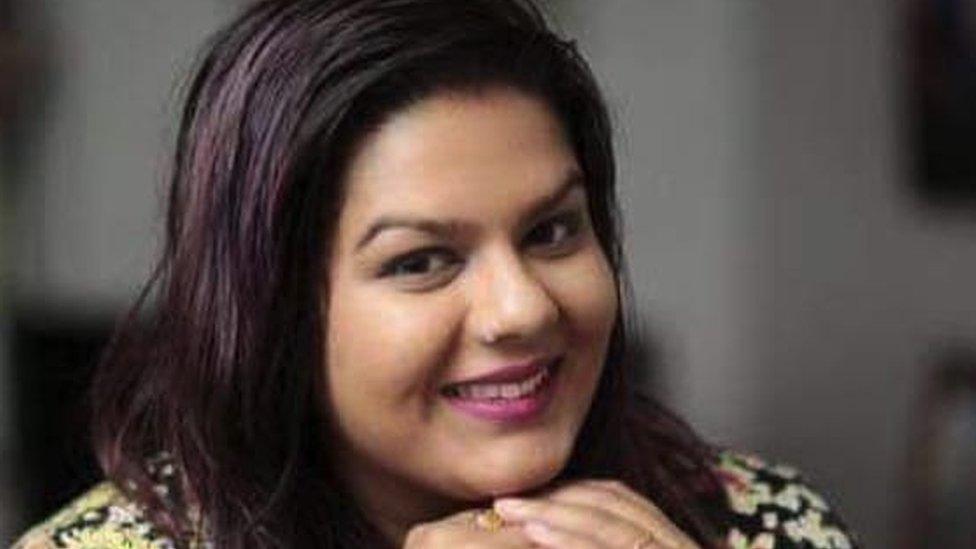
Neelam Heera says the women she works with have other priorities
Neelam Heera, 30, from Huddersfield, is of Indian Sikh descent. She says her family's ethnicity never comes up in conversation - except on social media "where people find it easy to argue with each other".
She founded Cysters, a charity that combats misconceptions around reproductive health, and works extensively with women from a range of South Asian communities.
"These health conditions and medical conditions don't discriminate, so why should we?" she asks.
She says that tensions between Pakistan and India have never been raised in the meetings or online communities.
"For these women there are far bigger things to think about. They're living in chronic pain, so dealing with Kashmir, and which side you're on, isn't something that is going to come across [their minds]. It's not their priority, they've got other concerns," she adds.
'Really inclusive'
Like Heera, Khakan Qureshi, an LGBT activist from Birmingham, says common goals unite people from all faiths and nationalities.
Mr Qureshi, 49, also works with people from a broad range of backgrounds as part of BirminghamAsianLGBT, a voluntary-led organisation for LGBT South Asians in the UK.
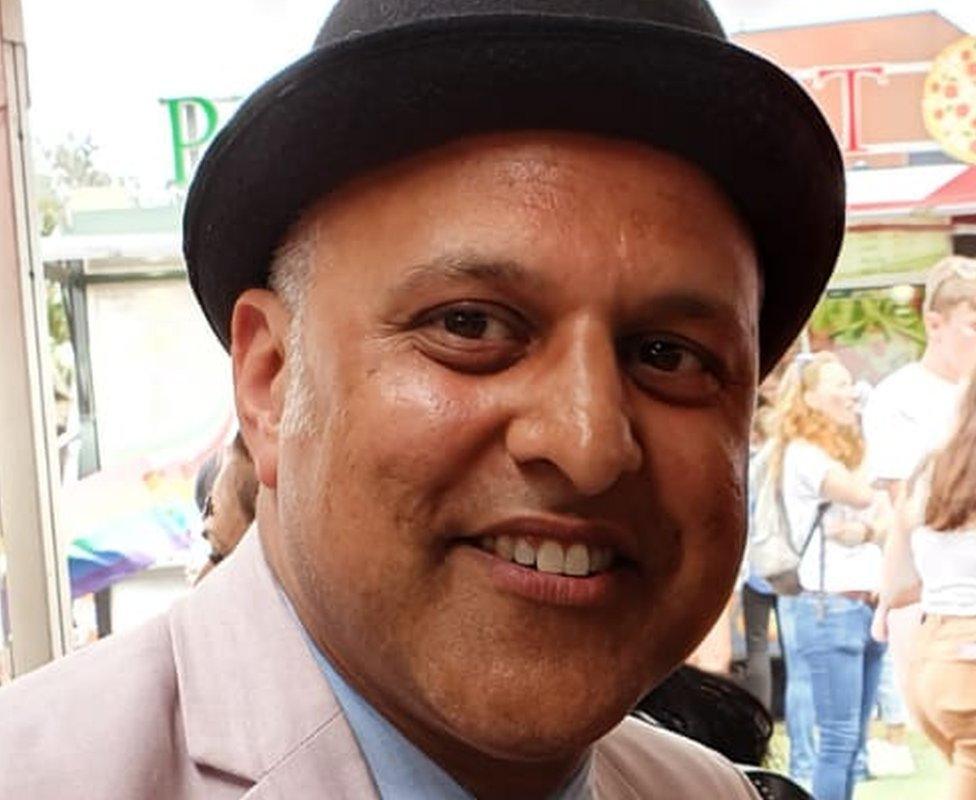
Khakan Qureshi
"Everybody tries to be really inclusive of one another, that's what makes us bond together and connect. If I connect with somebody I don't really consider their faith or religion, it's their personality," he says.
But he is concerned that is not always the case for younger generations.
"Now people are trying to be much more specific when it comes to identity, when it comes to identity politics." he says.
"Myself and all my peers we're trying to support commonality, in that we're looking at building bridges, friendships, regardless of whether we identify as Pakistani, Muslim, Hindu, Sikh or Indian.
"I feel that the younger generation are looking at identity and are wanting to be much more separated - in some cases, not always."
'More divided'
Pragna Patel founded Southall Sisters, a secular organisation made up of black and minority women which challenges gender-based violence. She says she has fostered an ethos that aims to unite people against inequality.
"But outside of our centre, of course the currents are swimming against us," she says.
"People are divided more and more, it's harder to forge solidarity among South Asians, let alone among all minority groups. That is because religion has become too politicised as an identity."
She says younger people are more likely to "think of themselves in opposition to others" because they have no memory of Partition - in which up to 1 million people died and millions more were displaced when British-ruled India became the two new nations of India and Pakistan in 1947 - and have grown up amid increasingly polarised politics.

What is going on in Kashmir?
Kashmir was plunged into an unprecedented lockdown this month, following the revocation of Article 370, the constitutional provision which gave the state of Jammu and Kashmir special dispensation to make its own laws on everything apart from matters of foreign affairs, defence and communications.
Telecommunications were cut off and local leaders were detained as tens of thousands of troops were deployed to patrol the streets.
The UN said the restrictions are deeply concerning and "will exacerbate the human rights situation".
Last week the BBC witnessed police opening fire and using tear gas to disperse thousands of people who took to the streets to protest. The Indian government denied the protest took place.
The Himalayan region of Kashmir is claimed in its entirety by both India and Pakistan, but they each control only parts of it.
There is a long-running separatist insurgency on the Indian side, which has led to thousands of deaths over three decades. India accuses Pakistan of supporting insurgents but its neighbour denies this, saying it only gives moral and diplomatic support to Kashmiris who want self-determination.
Young Kashmiris on India's decision: "We've been pushed back into medieval times"
Mr Modi defended his highly controversial decision to remove the special status accorded to Kashmir, calling it a "new era" for the Indian-administered part of the region, while large numbers of Indians celebrated the move.

- Published15 August 2019
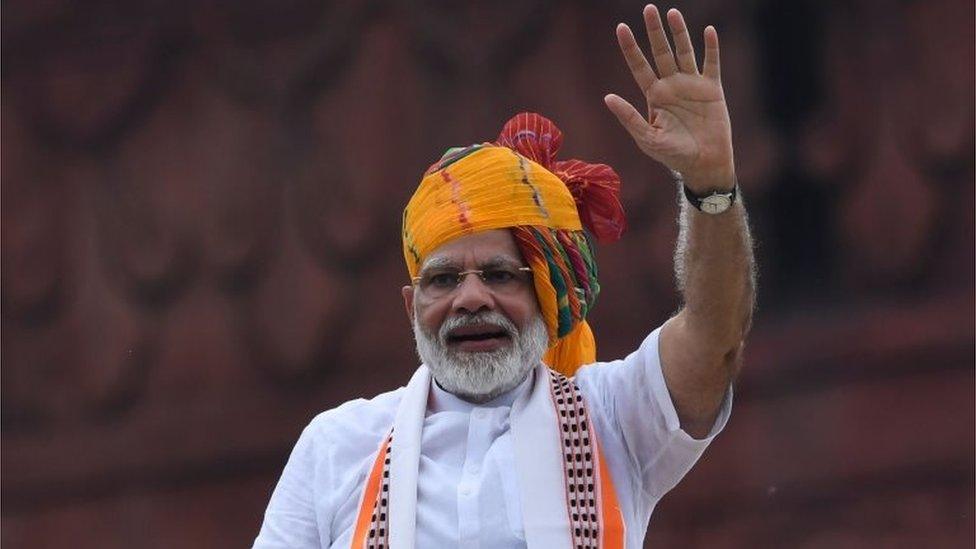
- Published9 August 2019
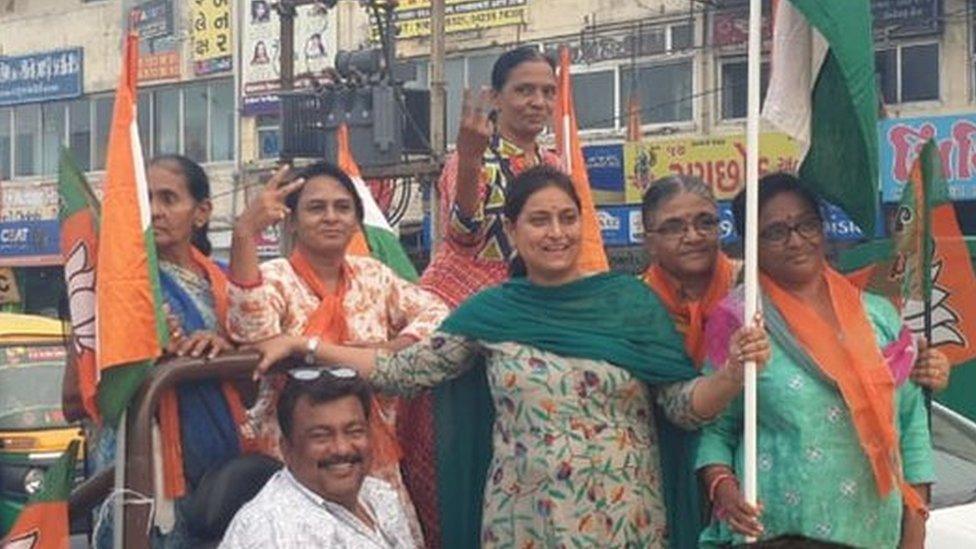
- Published6 August 2019
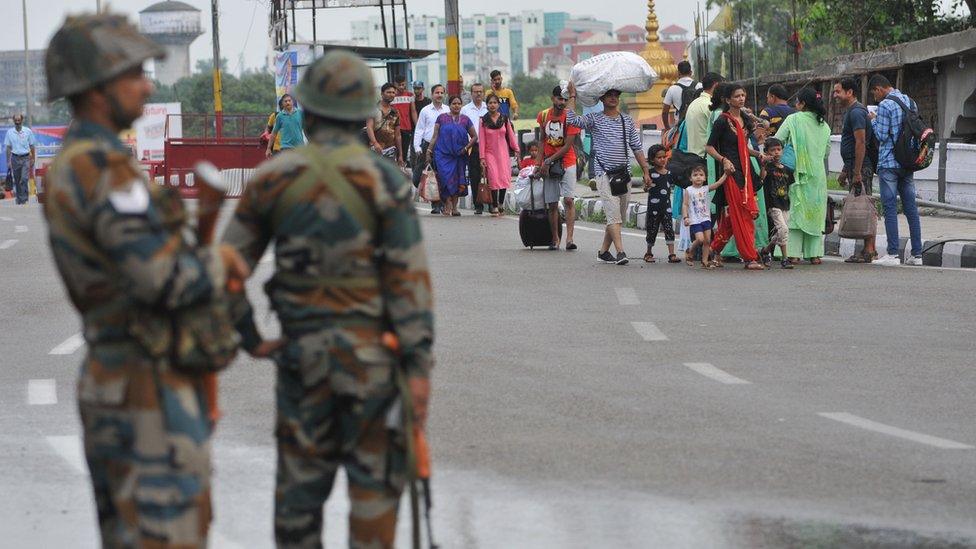
- Published10 March
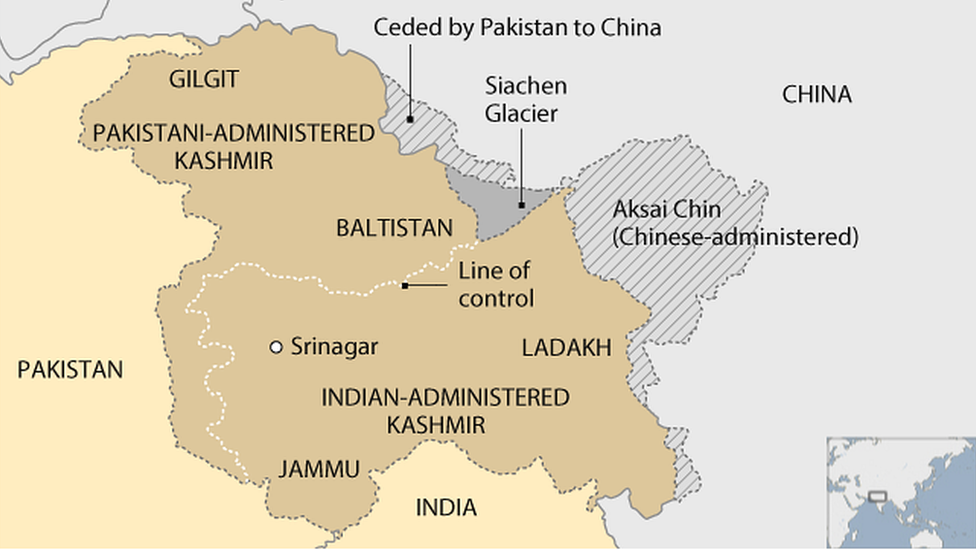
- Published6 August 2019
- Published13 August 2019
